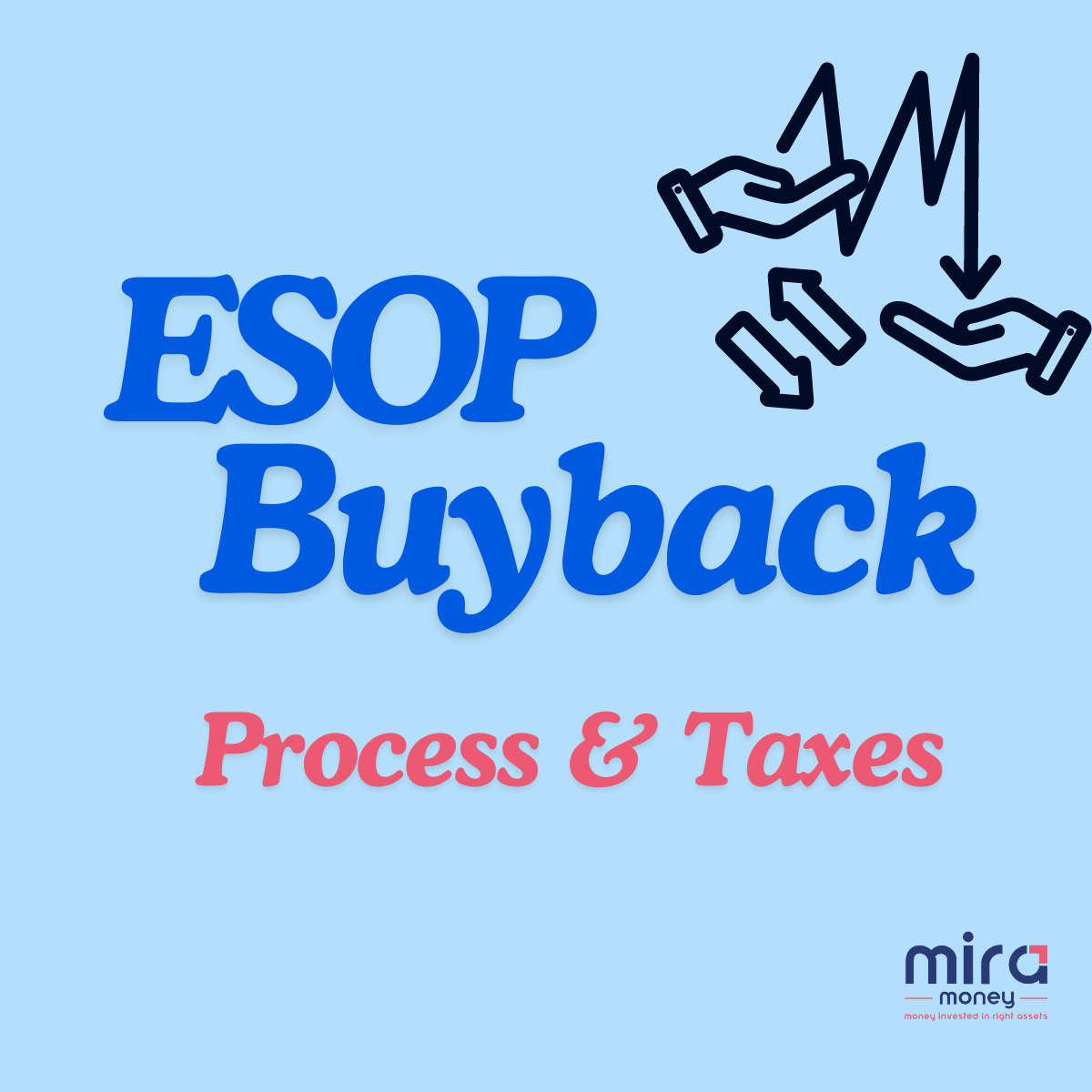An Employee Stock Ownership Plan (ESOP) buyback in India involves the company buying back shares issued to employees under the ESOP scheme. Here’s a detailed look at how it works and the associated tax implications:
ESOP Buyback Process in India
Issuance of ESOPs:
- Companies grant stock options to employees as part of their compensation package.
- These options can be exercised by employees after a certain period (vesting period).
Exercise of Options:
- Employees exercise their stock options, converting them into shares by paying the exercise price.
Buyback Offer:
- The company may offer to buy back these shares from the employees. This can be done for several reasons, such as providing liquidity to employees, managing equity dilution, or adjusting capital structure.
Buyback Procedure:
- The company announces the buyback, specifying the price and other terms.
- Employees willing to sell their shares accept the offer.
- The company purchases the shares and pays the employees the agreed buyback price.
Tax Implications of ESOP Buyback
At the time of exercising the option:
- Perquisite Tax: The difference between the Fair Market Value (FMV) of the shares on the date of exercise and the exercise price is considered a perquisite. This amount is taxed as part of the employee’s salary under the head 'Income from Salaries.'
At the time of the buyback:
- Capital Gains Tax: When the company buys back the shares, the difference between the buyback price and the FMV on the date of exercise is taxed as capital gains.
- Short-Term Capital Gains (STCG): If the shares are sold within 24 months of exercise, the gain is considered short-term and taxed at applicable rates (usually 15% plus applicable surcharges and cess).
- Long-Term Capital Gains (LTCG): If the shares are sold after 24 months, the gain is considered long-term. LTCG exceeding ₹1 lakh is taxed at 10% (without indexation benefit).
Buyback Tax:
- Companies conducting the buyback are required to pay an additional tax on distributed income (buyback tax) at 20% (plus surcharge and cess) on the distributed income. Distributed income is the difference between the buyback price and the issue price of the shares.
Example
Suppose an employee is granted 1000 ESOPs at an exercise price of ₹100 per share. The FMV at the time of exercise is ₹300 per share. Later, the company offers to buy back the shares at ₹500 per share.
At Exercise:
- Perquisite Tax = (FMV - Exercise Price) * No. of Shares
- = (₹300 - ₹100) * 1000
- = ₹200,000 (This amount is added to the employee’s salary and taxed as per the applicable slab rate)
At Buyback:
- Capital Gains = (Buyback Price - FMV at Exercise) * No. of Shares
- = (₹500 - ₹300) * 1000
- = ₹200,000
- If sold within 24 months, it will be considered STCG and taxed at 15%.
- If sold after 24 months, it will be considered LTCG, and gains above ₹1 lakh will be taxed at 10%.
Buyback Tax for Company:
- Buyback Tax = 20% of (Buyback Price - Issue Price) * No. of Shares
- = 20% of (₹500 - ₹100) * 1000
- = 20% of ₹400,000
- = ₹80,000 (plus applicable surcharge and cess)
Navigating ESOP buybacks and taxes in India can be complex. Employees should consult with tax professionals to understand their specific situation and ensure compliance with tax laws.
